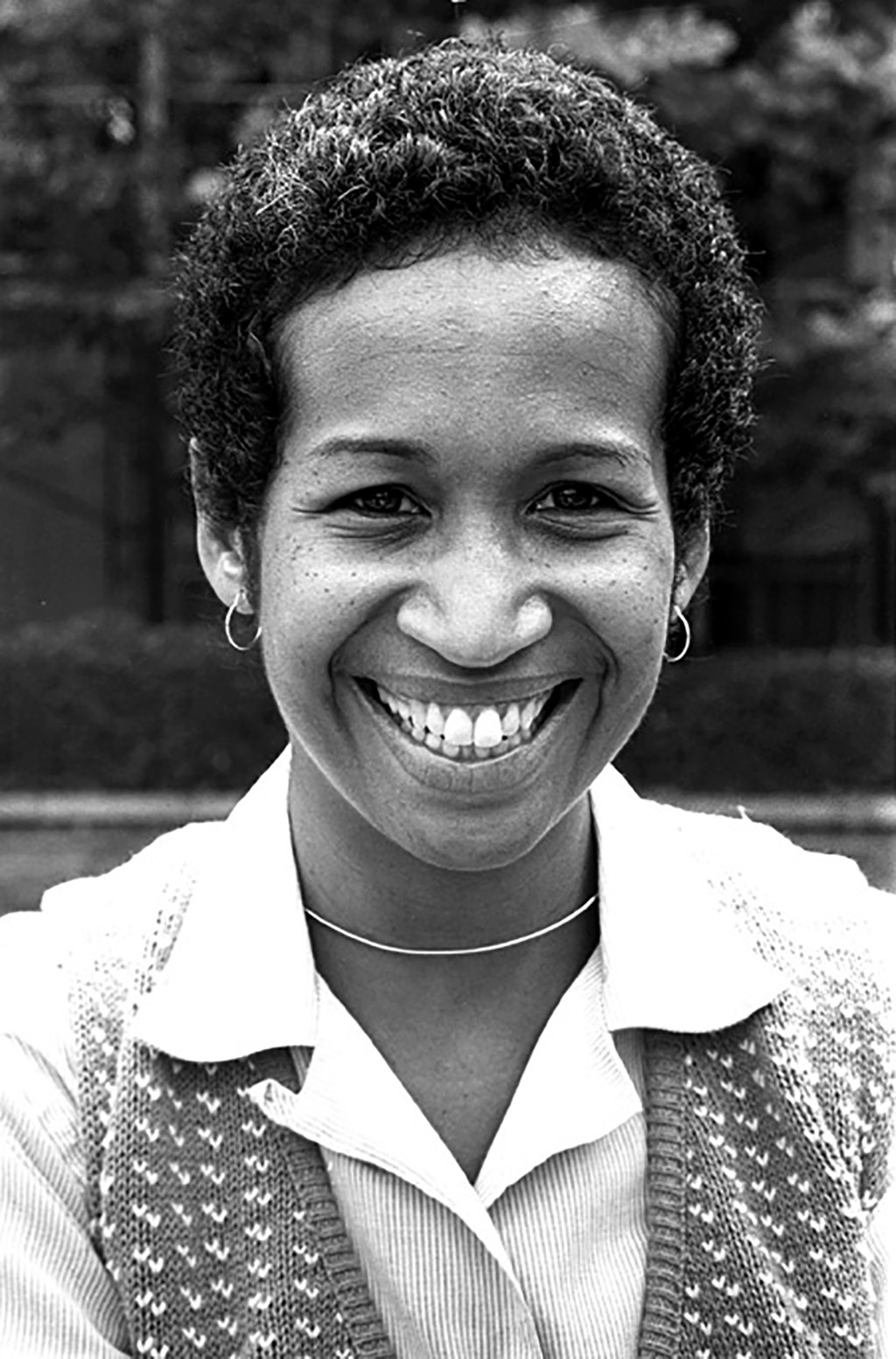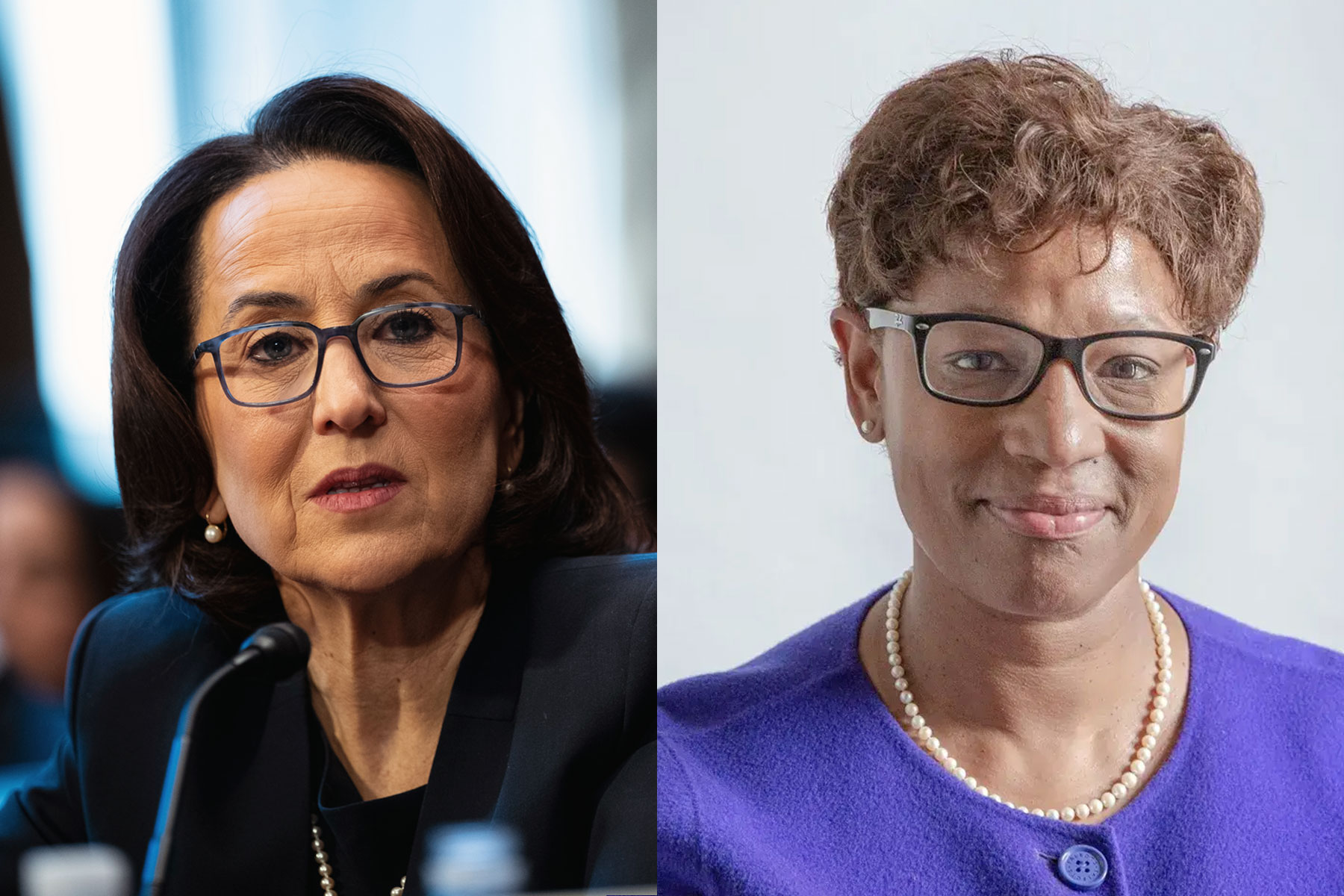In three years, President Joe Biden’s nominations have helped to bring broader diversity to the federal judiciary — a body that has long been dominated by White cisgender men.
Now, Biden and Senate Democrats are poised to tie a record for confirmations of LGBTQ+ judges. If the Senate approves Judges Nicole Berner and Melissa DuBose, Biden will tie with former President Barack Obama’s record of appointing 11 openly LGBTQ+ lifetime judges to the federal bench. These confirmations would come at a time when more LGBTQ+ rights cases are being fought in courts across the country — and even making their way to the U.S. Supreme Court.
“LGBTQ+ representation belongs everywhere, within all of our nation’s institutions in our system,” said Judi O’Kelley, co-interim executive director and chief program and policy officer for the National LGBTQ+ Bar Association. “We are very grateful that President Biden has been working to remedy the historic vast underrepresentation of LGBTQ+ people, including people with intersectional identities, on the federal bench.”
Berner would be the first openly LGBTQ+ judge on the U.S. Court of Appeals for the 4th Circuit, which is currently considering two separate cases about government-sponsored insurance benefits for adults receiving gender-affirming care in North Carolina and West Virginia. The Senate Judiciary Committee recently advanced Berner’s nomination to the full Senate for a vote, which is expected to take place within the next few weeks.
Berner would be the third openly LGBTQ+ women to serve as a federal appellate court judge — all three of whom have been nominated by Biden, according to the Leadership Conference on Civil and Human Rights, a civil rights lobbying group.
DuBose would be the first openly LGBTQ+ judge, and the first person of color, on the U.S. District Court for the District of Rhode Island. DuBose is currently awaiting her Senate Judiciary Committee confirmation hearing.
Currently about 2 percent of Article III lifetime federal judges — 21 out of about 815 active judges — are openly queer, according to data from the Leadership Conference on Civil and Human Rights and the Federal Judicial Center. No openly transgender or nonbinary judges have ever been nominated or confirmed to these prestigious positions.
Lena Zwarensteyn, senior director of the fair courts program at the Leadership Conference on Civil and Human Rights, said that the importance of having more out LGBTQ+ judges is twofold: It helps to build more public trust in the judiciary, and it brings needed perspective into courtrooms that have not had LGBTQ+ life experiences represented on the bench.
“I think it’s crucial right now,” she said. “I say that in the context, especially, of numerous bills that have been advanced to intentionally harm the LGBTQ community, particularly when we think about some of the bills that are attacking transgender youth in particular.”
Lawsuits over gender-affirming care bans for trans youth have reached the 6th and 11th Circuits, as lower courts across the country grapple with whether banning such medical care is likely unconstitutional on the grounds of the 14th Amendment. Lower courts have repeatedly found that such bans violate the 14th Amendment’s equal protection and due process clauses, while several federal appeals courts have rebuked those lower-court decisions.
Many lawsuits over anti-LGBTQ+ laws or discriminatory policies are currently underway — particularly now that 22 states have banned gender-affirming care for trans youth. Active challenges include one against Indiana’s gender-affirming care ban, now before the 7th Circuit, as well as a lawsuit against Texas’ care ban before the state’s Supreme Court. In Oklahoma, another case against the state’s gender-affirming care ban is currently before the 10th Circuit.
Harper Seldin, a staff attorney for the ACLU’s LGBTQ & HIV Project, is working on all of those cases. As more anti-LGBTQ+ bills are proposed in state legislatures, the ACLU and other civil rights groups are committed to challenging laws when they can, he said — though he feels that the courts are becoming increasingly hostile in certain areas of the country.
“It is becoming harder to educate courts on how these laws really prevent transgender people from living their lives on equal terms,” Seldin said. “Courts and judges are like everyone else, they’re affected by the media climate that they’re in. And so to the extent that that climate becomes more hostile to trans people, it becomes difficult, and impossible, I think, to wall off the courts from that.”
Judges have been increasingly following the precedent set by a recent 6th Circuit ruling that mandated gender-affirming care bans stay in place in Kentucky and Tennessee, Seldin said — even though they don’t have to. A 6th Circuit ruling is only binding for the handful of states in the court’s jurisdiction, and other states aren’t obligated to follow suit.
“For the moment, folks are looking to those decisions,” he said.
Until recent presidential administrations, representation of out LGBTQ+ federal judges was almost nonexistent. In 1994, Deborah A. Batts became the first openly queer federal judge in the country. She was appointed by President Bill Clinton to the U.S. District Court in the Southern District of New York.

It would be another 17 years before J. Paul Oetken, appointed to the same court by Obama, became the second openly LGBTQ+ federal judge. Two judges — Vaughn Walker, appointed by President George W. Bush, and Martin Jenkins, appointed by Clinton — came out after they joined the federal judiciary.
Obama reached a record number of LGBTQ+ judges, with 11 of them confirmed over his eight years in office. President Donald Trump appointed two LGBTQ+ judges in four years and Biden currently has nine LGBTQ+ judges in three years.
Biden and Senate Democrats have also prioritized racial, gender and professional diversity in their nominees. Of Biden’s 164 confirmed judges, 104 of them are women, and a majority of those are women of color. Additionally, they have increased the number of judges with public defender and civil rights backgrounds.
With the rise of LGBTQ+ judges, more queer lawyers are expressing interest in positions on federal courts, said Kristin L. Rosi, president of the International Association of LGBTQ+ judges and the chief administrative law judge for the California Department of Insurance.
“I think that’s something on the table right now in a way that people did not feel was on the table in years past,” Rosi said.
Generally presidents set the tone for the kind of background and characteristics they look for in their judicial nominees. Some nominate judges within a particular age range; others tend to nominate judges with work experience as prosecutors or corporate lawyers. U.S. senators play a key role in recommending potential nominees from their state.
While recent additions to the federal judiciary are more reflective of the U.S. population, on the whole lifetime federal judges remain overwhelmingly White heterosexual cisgender men. More work needs to be done to expand diversity, experts told The 19th.
Part of that work requires intentional recruitment and training to maintain a pipeline of qualified legal professionals who are interested in public service, said Daniel Anders, a judge for the Philadelphia County Court of Common Pleas and the former president of the International Association of LGBTQ+ judges.
“If the pathways are not utilized, or not taken, then they tend to be overgrown and forgotten,” Anders said. “But, if every year or every term there are successful LGBT candidates who become judges, then the conversation will change to, ‘We value that diversity and we want to make sure that there’s LGBT representation on the court.’”
Networks like the National LGBTQ+ Bar Association aim to be part of the solution, O’Kelley of the association said. The bar association hosts sessions during its conferences that are focused on pathways to the judiciary. It also offers a program called the Nuts & Bolts Academy for Judicial Candidates. The academy provides mentoring and networking opportunities to candidates who are seriously interested in pursuing a judicial position within the next three years.
The education does not end with LGBTQ+ judicial candidates, however. The bar association also wants to provide cultural competency training to judges of all backgrounds with the hope of strengthening their ability to make fair decisions.
“Even with the increase in numbers that we’re talking about, I think we’re roughly talking about 2 percent of our Article III federal judges being LGBTQ+ identified,” O’Kelley said. “That’s a whole lot of other judges who we want to make sure are getting the education and the cultural competency that we need. Because we do look to them to be administering our laws fairly and on behalf of everyone.”






